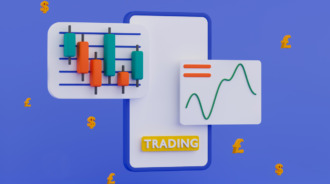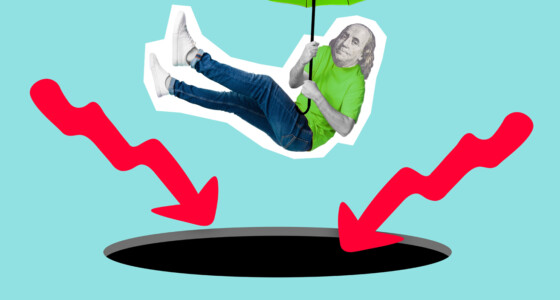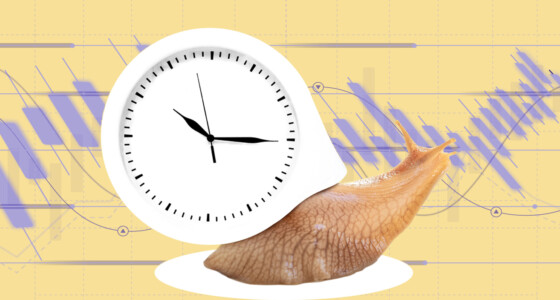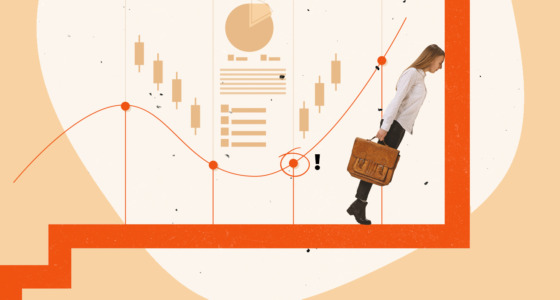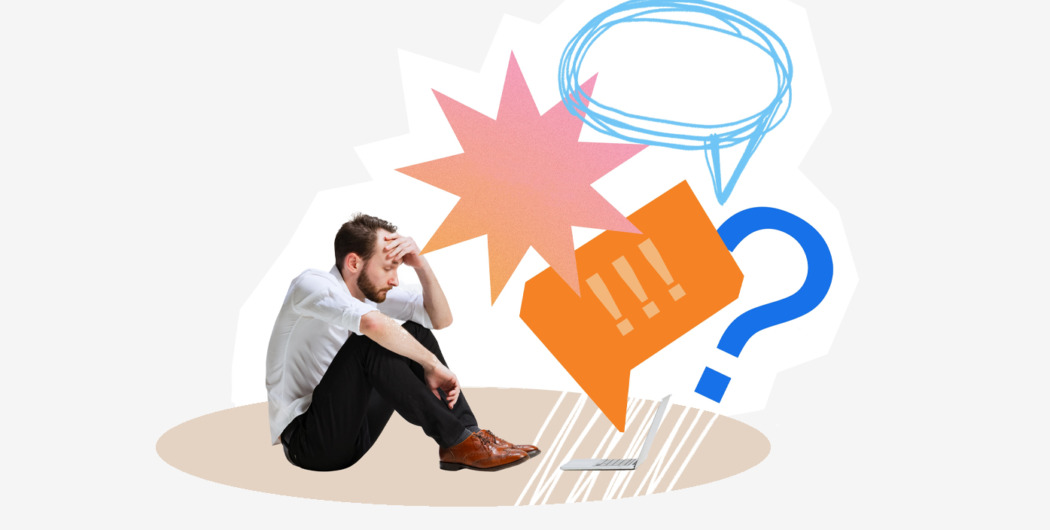

There are questions that everyone has a strong opinion on…Cats or dogs? How do you pronounce GIF? Is a hot dog a sandwich? The last one was even explored in scientific literature.
This article will be about other kinds of questions. These questions will put you on the right path and keep you away from many trading mistakes.
1. What does technical analysis tell you about the instrument?
The first (and one of the biggest) day trading mistakes is rushing through technical analysis or failing to conduct it at all. Even if you find some tools complicated or unnecessary, there are many ways to analyze technical market information. There are numerous potential variables, which give traders many opportunities to explore charts, patterns, and signals.
Before entering a trade, it’s important to know if there is an upward, downward, or sideways trend—or no trend at all. There might be a breakout coming, which should also be considered. Technical info captures trends and momentum best.
2. What does fundamental analysis tell you about the instrument?
Next on the list of trading mistakes to avoid is failing to analyze the fundamental factors that affect the price of an asset. Specifically, you need to look at publicly-known information about the company (if you’re about to trade a stock). You can also get a lot of insight by studying historical data to check how the instrument performed in the past.
To answer this question, you’ll need to review many elements. For example, when trading stock, consider:
- The company’s financial statements
- The performance of competitors and the overall industry
- Press releases
- The economic and political environment
It’s always worth taking the time to stay updated on the fundamentals.
3. Does the trade fit in your strategy?
This question will keep you from impulsive trading by reminding you of the set of trading rules you have to follow. These should clearly state what markets to trade in, when to enter into a position, when to cut losses, etc. If your planned trade meets all the criteria, go ahead. If you’re compromising the integrity of your strategy just to take this trade, hold off.
Whether you feel excitement, anger, greed, or something else, your trading decisions should not be affected by them. Your trading strategy is there to keep you within bounds.

4. How much are you risking on this trade?
The next on the list of the worst trading mistakes and questions to avoid them: not knowing how much you’re risking and accidentally risking too much.
Questioning yourself about the amount you’re risking is the basis of risk management. And the ultimate reason to incorporate risk management practices is to prevent losses from getting out of control. So, this leads to a conclusion that this question can protect you from a trader’s worst nightmare—losing everything at once.
5. Do you know when to exit and take profits?
An exit strategy complements your overall trading strategy and ensures that you plan the exact conditions for closing a trade. Without these conditions, you’d leave your trading decisions to emotions and chance, which could lead you to take profits prematurely or run your losses.
If you’re about the close a position, remind yourself of the questions from above. Just like you would with an entry, you need to assess both the technicals and the fundamentals to exit.
There are many exit strategies that fit different styles and goals. Although, one thing that should be included in whatever strategy you choose is the take-profit order.
6. What’s your backup plan?
When trading systems fail, backup plans come to the rescue. This part of the strategy is another barrier keeping you from making emotional trading mistakes.
You can interpret this question in a couple of different ways. On a small scale, it can mean planning what you will do if a trade goes wrong. Perhaps your backup plan will be hedging. On a larger scale, you might also want to contemplate what you will do in the case of a long-term losing streak. A backup plan for this can be an entirely different strategy and an alternative source of income.
Conclusion
If you don’t want to repeat the most common trading mistakes, this set of questions should be a good start. But it’s also a good idea to look beyond! Learn from your wins and losses, see what works and what doesn’t, and add other questions to your decision-making process.
Overall, remember that every trading decision should be deliberately planned.
